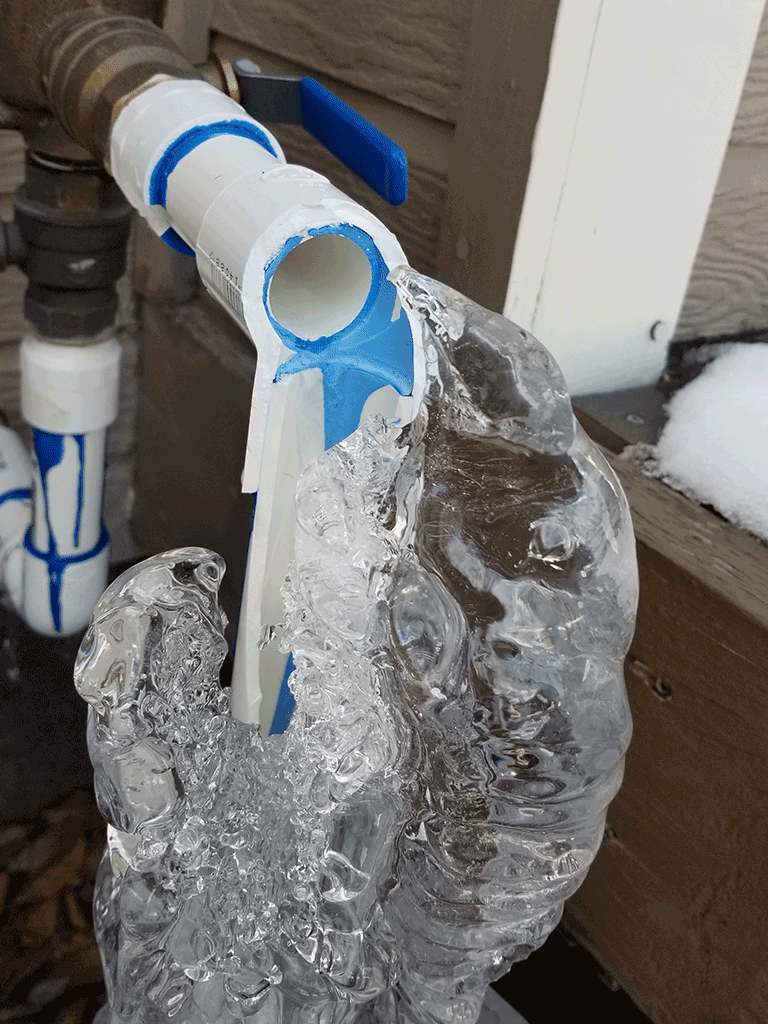Avoid Frozen Plumbing in Cold Weather: Expert Advice
Avoid Frozen Plumbing in Cold Weather: Expert Advice
Blog Article
Here down the page you can get some excellent resources regarding How to prepare your home plumbing for winter weather.

Winter can damage your pipes, especially by freezing pipelines. Here's how to avoid it from taking place and what to do if it does.
Introduction
As temperatures drop, the threat of icy pipelines rises, possibly resulting in costly repair services and water damages. Recognizing how to avoid frozen pipelines is critical for home owners in chilly environments.
Recognizing Icy Pipelines
What causes pipes to freeze?
Pipelines freeze when revealed to temperature levels listed below 32 ° F (0 ° C) for prolonged durations. As water inside the pipes ices up, it increases, taxing the pipeline walls and possibly causing them to burst.
Risks and damages
Frozen pipes can result in water supply disruptions, home damage, and costly repair services. Ruptured pipes can flooding homes and trigger considerable architectural damages.
Signs of Frozen Water Lines
Determining icy pipes early can prevent them from rupturing.
Exactly how to recognize frozen pipes
Look for decreased water circulation from faucets, unusual odors or sounds from pipelines, and noticeable frost on revealed pipelines.
Avoidance Tips
Shielding susceptible pipes
Cover pipes in insulation sleeves or make use of warmth tape to safeguard them from freezing temperatures. Concentrate on pipelines in unheated or external areas of the home.
Heating methods
Keep indoor rooms properly warmed, especially areas with pipes. Open closet doors to allow cozy air to circulate around pipelines under sinks.
Safeguarding Exterior Plumbing
Garden pipes and outside faucets
Detach and drain yard pipes prior to winter months. Set up frost-proof spigots or cover outside faucets with shielded caps.
What to Do If Your Pipelines Freeze
Immediate actions to take
If you think frozen pipes, keep taps open up to soothe stress as the ice melts. Utilize a hairdryer or towels soaked in hot water to thaw pipelines slowly.
Long-Term Solutions
Structural modifications
Take into consideration rerouting pipelines far from outside wall surfaces or unheated areas. Add additional insulation to attics, basements, and crawl spaces.
Upgrading insulation
Invest in high-grade insulation for pipes, attic rooms, and wall surfaces. Proper insulation aids maintain regular temperatures and lowers the risk of icy pipes.
Conclusion
Preventing frozen pipes requires aggressive steps and fast actions. By understanding the causes, signs, and preventive measures, homeowners can protect their plumbing throughout winter.
Helpful Tips to Prevent Frozen Pipes this Winter
UNDERSTANDING THE BASICS: WHY PIPES FREEZE AND WHY IT’S A PROBLEM
Water freezing inside pipes is common during the winter months, but understanding why pipes freeze, and the potential problems it can cause is crucial in preventing such incidents. This section will delve into the basics of why pipes freeze and the associated problems that may arise.
THE SCIENCE BEHIND FROZEN PIPES
When water reaches freezing temperatures, it undergoes a physical transformation and solidifies into ice. This expansion of water as it freezes is the primary reason pipes can burst. As the water inside the pipe freezes, it expands, creating immense pressure on the walls. If the pressure becomes too great, the pipe can crack or rupture, leading to leaks and water damage.
FACTORS THAT CONTRIBUTE TO PIPE FREEZING
Low Temperatures: Extremely cold weather, especially below freezing, increases the risk of pipes freezing. Uninsulated or Poorly Insulated Pipes: Pipes located in unheated areas, such as basements, crawl spaces, or attics, are more prone to freezing. Insufficient insulation or lack of insulation altogether exacerbates the problem. Exterior Wall Exposure: Pipes running along exterior walls are susceptible to freezing as they encounter colder temperatures outside. Lack of Heating or Temperature Regulation: Inadequate heating or inconsistent temperature control in your home can contribute to frozen pipes. PROBLEMS CAUSED BY FROZEN PIPES
- Pipe Bursting: As mentioned earlier, the expansion of water as it freezes can cause pipes to burst, resulting in significant water damage.
- Water Damage: When pipes burst, it can lead to flooding and water damage to your property, including walls, ceilings, flooring, and personal belongings.
- Structural Damage: Prolonged exposure to water from burst pipes can compromise the structural integrity of your home, leading to costly repairs.
- Mold and Mildew Growth: Excess moisture from water damage can create a favorable environment for mold and mildew growth, posing health risks to occupants.
- Disrupted Water Supply: Frozen pipes can also result in a complete or partial loss of water supply until the issue is resolved.
WHY CERTAIN PIPES ARE MORE PRONE TO FREEZING
- Location: Pipes located in unheated or poorly insulated areas, such as basements, crawl spaces, attics, or exterior walls, are at higher risk of freezing.
- Exterior Pipes: Outdoor pipes, such as those used for irrigation or exposed plumbing, are particularly vulnerable to freezing as they are directly exposed to the elements.
- Supply Lines: Pipes that carry water from the main water supply into your home, including the main water line, are critical to protect as freezing in these lines can affect your entire plumbing system.
- Underground Pipes: Pipes buried underground, such as those connected to sprinkler systems or outdoor faucets, can be susceptible to freezing if not properly insulated.
https://busybusy.com/blog/helpful-tips-to-prevent-frozen-pipes-this-winter/

We had been shown that write-up on Helpful Tips to Prevent Frozen Pipes this Winter from a friend on a different web blog. Liked our entry? Please quickly share it. Help somebody else check it out. Thank you so much for your time spent reading it.
Visit Homepage Report this page